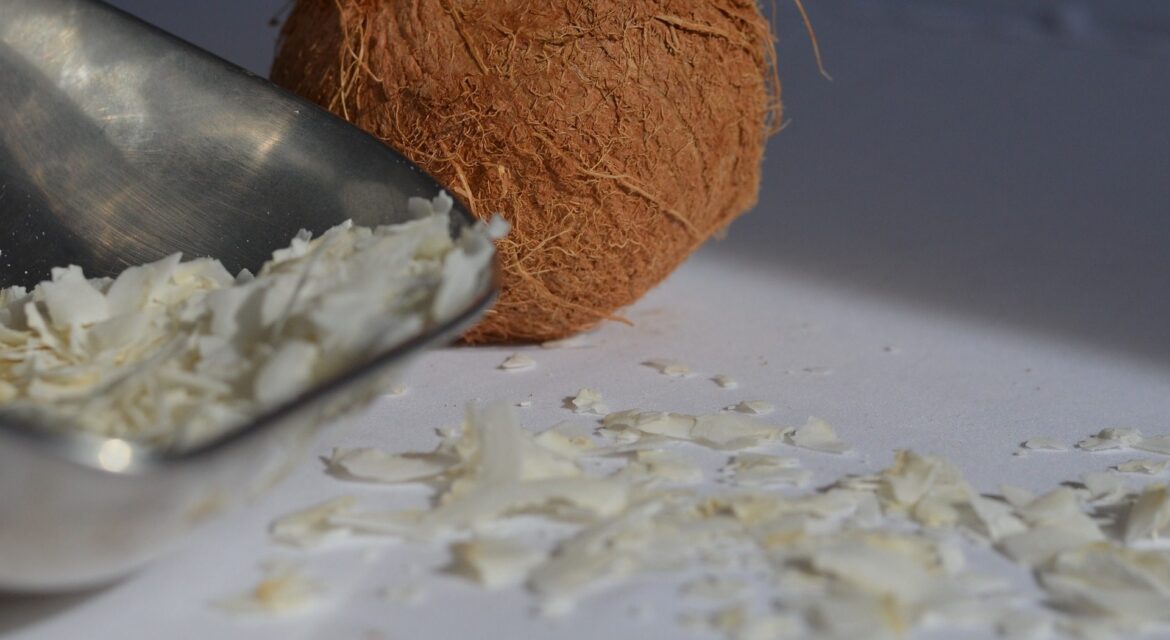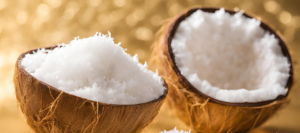Navigating the European Coconut Market: A Comprehensive Look at Importers and Trends
Table of Contents
- Introduction to the European Coconut Market
- Top European Coconut Importers
- Sustainable Practices in Coconut Importing
- Regulatory Landscape for Coconut Imports
- Market Trends and Demand Analysis
- Challenges and Opportunities for Coconut Importers
- Future Outlook for the European Coconut Industry
- Conclusion
Introduction to the European Coconut Market
The European coconut market has seen significant growth in recent years, driven by increasing consumer demand for healthy, exotic products. Coconut importers in Europe play a crucial role in meeting this demand, sourcing high-quality coconuts and coconut products from tropical regions around the world. This guide aims to provide a comprehensive overview of the European coconut import industry, including key players, market trends, and opportunities for growth.
Top European Coconut Importers
Europe boasts a diverse range of coconut importers, each catering to different market segments and regional preferences. Here’s a look at some of the leading players:
- Netherlands: The largest volume buyers in the Netherlands include:
- ABC Imports B.V.
- Tropical Traders Rotterdam
- Green Globe Coconuts
- Germany: Key German processing industry partnerships:
- Grofarm uG
- Kölla Hamburg GmbH
- Früchte Jork GmbH
- BioTropic GmbH
- Grofarm uG
- United Kingdom: Major UK beverage manufacturers procurement:
- Innocent Drinks
- Vita Coco Europe Ltd.
- The Coconut Collaborative
- France: Leading French cosmetic ingredient suppliers:
- Laboratoires M&L
- Naturex
- Gattefossé SAS
- Spain: Spanish food service sector demands met by:
- Natur Import S.L.
- Frutas Tápia
- Grupo Eurococo
For a comprehensive list of coconut importers across Europe, you can refer to the Top European coconut importers directory.
Sustainable Practices in Coconut Importing
Sustainability has become a key focus for many coconut importers in Europe. Consumers are increasingly concerned about the environmental and social impact of the products they purchase, leading to a growing demand for sustainably sourced coconuts.
Sustainable Tropical Fruit Trade Networks
Many European importers are now part of sustainable tropical fruit trade networks, which aim to promote environmentally friendly and socially responsible practices throughout the supply chain. These networks often work directly with farmers to ensure fair wages, safe working conditions, and sustainable farming practices.
Fair Trade Certified Vendors
Fair trade certification has gained significant traction in the coconut industry. Many European importers now prioritize working with fair trade certified vendors to ensure ethical sourcing practices. You can find a Fair trade certified vendors list to identify potential partners committed to sustainable and ethical practices.
Organic Farming Practices Verification Process
The demand for organic coconut products has surged in recent years. European importers often require suppliers to undergo a rigorous organic farming practices verification process to ensure compliance with EU organic standards. This process typically involves:
- Initial farm inspection
- Documentation review
- Soil and product testing
- Annual audits
For more information on organic certification requirements, visit the European Commission’s organic farming page.
Regulatory Landscape for Coconut Imports
Navigating the regulatory landscape is crucial for coconut importers in Europe. Compliance with EU regulations ensures product safety and quality, as well as smooth customs clearance.
Fresh Green Husked Shipping Regulations
Importing fresh green husked coconuts requires adherence to specific shipping regulations to prevent the spread of pests and diseases. Key considerations include:
- Phytosanitary certificates
- Fumigation requirements
- Packaging and labeling standards
Premium Quality Certification Requirements
To meet the demands of discerning European consumers, many importers require premium quality certification from their suppliers. This may include:
- ISO 22000 Food Safety Management
- HACCP (Hazard Analysis and Critical Control Points)
- BRC (British Retail Consortium) certification
Regulatory Compliance Documentation Checklist
Ensure you have the following documentation in order when importing coconuts to Europe:
- Commercial invoice
- Bill of lading or airway bill
- Packing list
- Certificate of origin
- Phytosanitary certificate (for fresh coconuts)
- Organic certificate (if applicable)
- Fair trade certificate (if applicable)
For a comprehensive guide on EU import regulations, visit the European Commission’s Trade Helpdesk.
Market Trends and Demand Analysis
Understanding market trends is essential for coconut importers to stay competitive and identify new opportunities. Here are some key trends shaping the European coconut market:
Scandinavian Market Demand Trends Analysis
The Scandinavian market has shown a growing appetite for coconut products, particularly in the health food and beverage sectors. Key trends include:
- Increased demand for coconut-based dairy alternatives
- Growing popularity of coconut water as a natural sports drink
- Rising interest in coconut-based snacks and desserts
UK Beverage Manufacturers Procurement
The UK beverage industry has seen a surge in coconut-based products, with manufacturers looking to capitalize on the health and wellness trend. Popular products include:
- Coconut water
- Coconut milk-based smoothies
- Coconut-flavored alcoholic beverages
Eastern Expansion Opportunities Forecast
Eastern European countries present significant growth opportunities for coconut importers. Factors driving this expansion include:
- Increasing disposable incomes
- Growing health consciousness
- Westernization of diets
Polish Health Food Stores Supply Chain
Poland has emerged as a key market for coconut products in Eastern Europe. Health food stores in the country are increasingly stocking a wide range of coconut-based items, including:
- Organic coconut oil
- Coconut flour
- Coconut sugar
Austrian Vegan Product Market Potential
Austria has seen a rapid growth in its vegan market, creating new opportunities for coconut importers. Popular vegan coconut products include:
- Coconut yogurt
- Coconut-based cheese alternatives
- Coconut ice cream
Challenges and Opportunities for Coconut Importers
While the European coconut market offers significant opportunities, importers also face several challenges:
Challenges:
- Logistics solutions for perishable goods: Ensuring the freshness and quality of coconut products during transport can be challenging, particularly for fresh coconuts.
- Competitive pricing strategies for exporters: With increasing competition, importers need to work closely with exporters to develop competitive pricing strategies while maintaining product quality.
- Fluctuating exchange rates: Currency fluctuations can impact profit margins and pricing strategies for importers.
Opportunities:
- Innovative packaging eco-friendly options: There’s growing demand for sustainable packaging solutions, presenting an opportunity for importers to differentiate their products.
- Greek yogurt alternative development opportunities: The popularity of Greek yogurt has paved the way for coconut-based alternatives, offering a new market segment for importers.
- Irish smoothie bar franchise requirements: The growing smoothie bar trend in Ireland presents opportunities for coconut importers to supply ingredients for coconut-based smoothies.
Future Outlook for the European Coconut Industry
The future of the European coconut industry looks promising, with several factors driving continued growth:
- Increasing health consciousness: As consumers become more health-conscious, the demand for natural, plant-based products like coconuts is expected to grow.
- Diversification of coconut products: From coconut flour to coconut-based cosmetics, the range of coconut products is expanding, creating new market opportunities.
- Technological advancements: Improvements in processing and preservation technologies are likely to enhance product quality and shelf life, benefiting both importers and consumers.
- Sustainable sourcing initiatives: As sustainability becomes increasingly important to consumers, importers who prioritize ethical and environmentally friendly sourcing practices are likely to gain a competitive edge.
Conclusion
The European coconut import industry presents a wealth of opportunities for businesses willing to navigate its complexities. By staying informed about market trends, regulatory requirements, and sustainable practices, coconut importers can position themselves for success in this growing market. Whether you’re an established player or considering entering the market, the key to success lies in understanding the unique demands of European consumers and adapting to the ever-evolving landscape of the coconut industry.
For more information on coconut importing opportunities in Europe, consider joining industry associations or attending trade shows such as Fruit Logistica or ANUGA. These events provide valuable networking opportunities and insights into the latest industry trends and innovations.




